History falls as dark past haunts the streets
The drive to rename and topple landmarks connected to slavery has gathered momentum across Britain and the US.
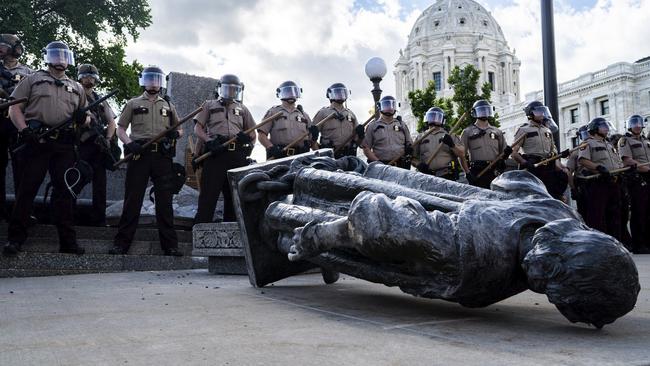
The drive to rename and topple landmarks connected to slavery has gathered momentum across Britain and the US, as local councils and universities pledge to act.
Several statues of Christopher Columbus have been damaged in the US, and Democrats leader Nancy Pelosi wants congress to take steps to remove from the US Capitol 11 statues representing Confederate leaders and soldiers from the 1860s Civil War.
A statue of Columbus in Richmond, Virginia, was torn down by protesters, set on fire, then thrown into a lake on Tuesday. A statue of Confederate president Jefferson Davis was also torn down in the city.
A second Columbus statue was pulled down in St Paul, Minnesota, after a rope was thrown around the 3m bronze and it was pulled off its stone pedestal. Another was beheaded in Boston.
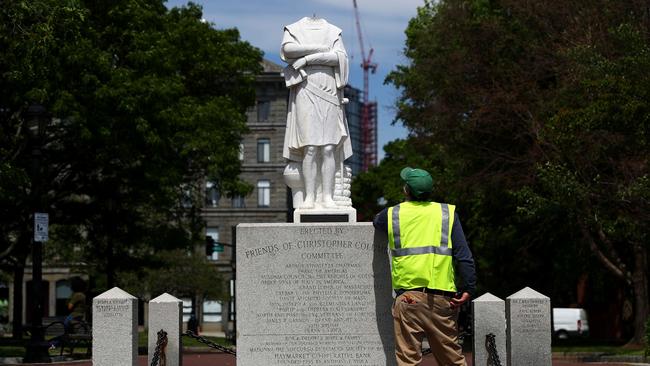
The incidents come as pressure builds in the US and Britain to rid the countries of monuments associated with racism following massive demonstrations over the killing of George Floyd by a white police officer in Minneapolis last month.
In Britain, all 130 Labour councils will review statues linked to colonialism after the toppling in Bristol of a statue to Edward Colston, a 17th-century slave trader.
A public square in Plymouth, southwest England, named after Sir John Hawkins, a cousin of Sir Francis Drake and considered the first English slave trader, will be renamed.
In the west English town of Shrewsbury, the Tory council leader said it was considering moving to a museum its statue of Robert Clive, known as Clive of India, who played a lead role in colonising much of the Indian subcontinent.
Guy’s and St Thomas’ Hospital in London said it would consider removing a statue of its founder, Sir Thomas Guy, but would not be changing its name. Guy helped to set up the hospital near London Bridge in 1721, having made his fortune in the 17th and 18th centuries as a major shareholder of a company selling slaves to the Spanish colonies.
A hospital spokesman said: “We recognise and understand the anger felt by the black community and are fully committed to playing our part in ending racism, discrimination and inequality.”
The Cardiff lord mayor is demanding that a marble statue of Sir Thomas Picton, the highest-ranking British officer killed at Waterloo, be removed from City Hall because of his slave trade past. Picton executed dozens of slaves during his time as governor of Trinidad and authorised the torture of a 14-year-old girl.
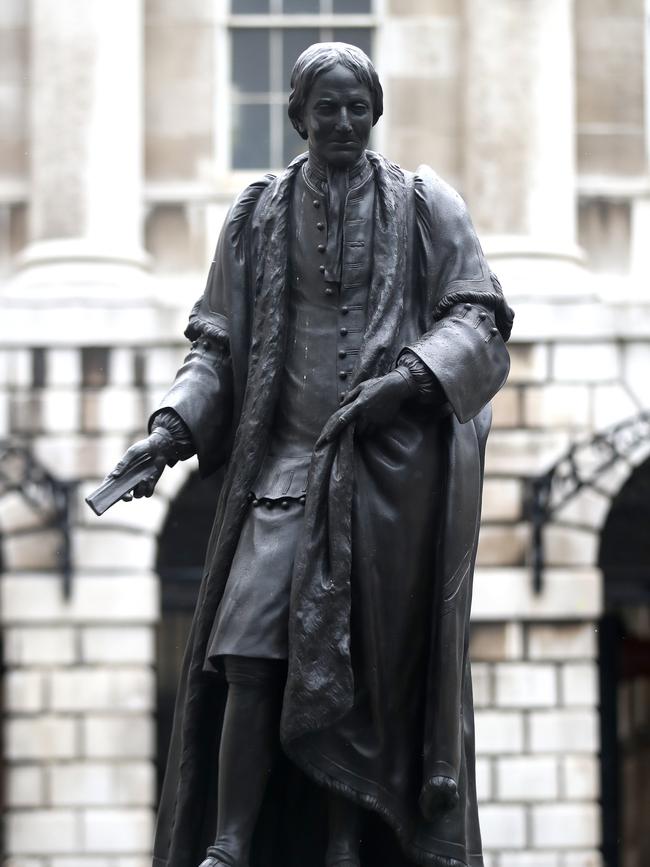
Dan De’Ath, the first black mayor of Cardiff, called the monument an affront to black people. “It is no longer acceptable for Picton’s statue to be among the heroes of Wales in City Hall,” he said.
A statue installed to honour Sir Henry Stanley, who uttered the famous phrase “Dr Livingstone, I presume?”, when he found the lost explorer in East Africa in 1871, is also the subject of a petition. It has been signed by more than 1500 people who want his statue removed from the centre of Denbigh, in Wales, where he was born.
Simon Jones, the petition’s organiser, said: “He was known for his brutal treatment of Africans to the extent that he used to shoot black children from his boat to calibrate his rifle sights while sailing down river.”
Penny Lane in Liverpool has also become the focus of controversy. As well as inspiring the Beatles’ song, the street was named after James Penny, a Liverpool slave ship owner and prominent anti-abolitionist, it is claimed.
Liverpool mayor Joe Anderson argued that it was actually named after a “toll bridge that cost a penny”.
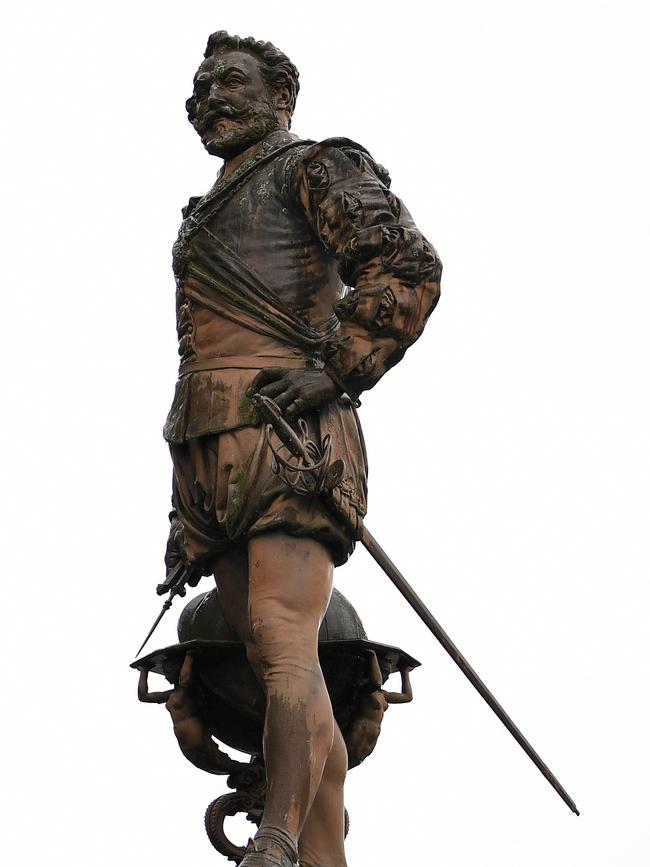
“There is no evidence that Penny Lane is named after slave trader James Penny,” he tweeted.
Haringey Council in north London will consult on changing the name of Black Boy Lane, one of 61 streets in the capital given the name in the 16th-19th centuries, but the only one remaining.
In Washington, Ms Pelosi said monuments “to men who advocated cruelty and barbarism to achieve such a plainly racist end are a grotesque affront to these ideals” of American democracy and freedom”. “Their statues pay homage to hate, not heritage. They must be removed,” she said.
President Donald Trump rejected the idea of renaming US military bases that are named for Confederate leaders.
The Times, Reuters, AP, AFP

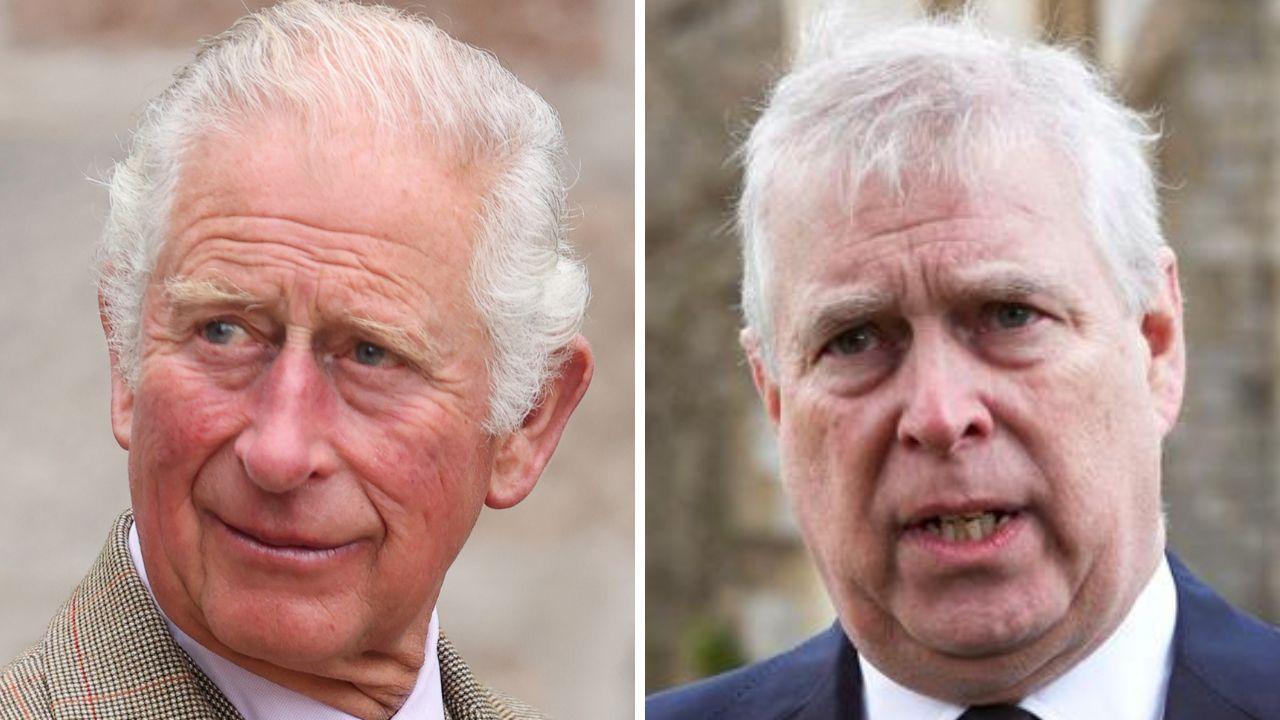

To join the conversation, please log in. Don't have an account? Register
Join the conversation, you are commenting as Logout